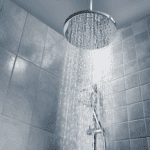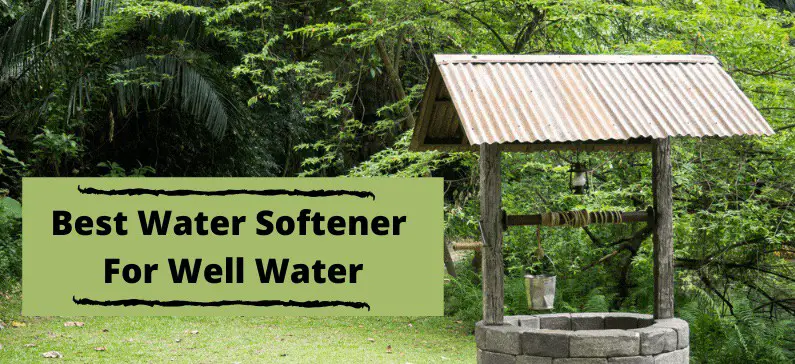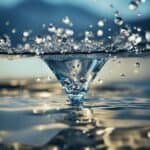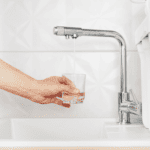If you have sensitive skin, you know how frustrating it can be to deal with the effects of hard water. The minerals in hard water can leave your skin feeling dry, itchy, and irritated, making it difficult to enjoy simple everyday activities like taking a shower or washing your hands.
Luckily, using a water softener can help alleviate these symptoms and make a significant difference in the quality of your skin. But with so many different types of water softener salt available, how do you know which one is best for your sensitive skin?
In this article, we’ll take a closer look at some of the top options for skin-friendly water softener salt and help you find the best one to keep your skin feeling healthy and happy.
Water Softener Salt and Its Effects On Sensitive Skin
Water softener salt, also known as ion exchange resin, is used to remove hard minerals from water. Hard water can be problematic for sensitive skin because the minerals can dry out the skin, clog pores, and exacerbate skin conditions like eczema and psoriasis. However, the use of water-softener salt can also have its own effects on sensitive skin.
The most common type of water softener salt is sodium chloride. When sodium chloride is dissolved in water, it breaks down into sodium and chloride ions. These ions can cause skin irritation and dryness in some people, especially those with very sensitive skin.
In addition, some water softener systems require the use of additional chemicals, such as chlorine or hydrogen peroxide, to regenerate the ion exchange resin. These chemicals can also irritate sensitive skin.
To minimize the potential effects of water softener salt on sensitive skin, it’s important to choose a system that uses the least amount of salt possible and does not require additional chemicals for regeneration. It’s also a good idea to use a mild, fragrance-free soap or cleanser to wash your skin and to apply a moisturizer after bathing.
If you are experiencing persistent skin irritation despite taking these precautions, you should consider installing a salt-free water conditioner to treat hard minerals without the use of ion exchange resin.
5 Best Water Softener Salt for Sensitive Skin
#1. Best Overall: Morton Clean and Protect Water Softener Pellets
- Country Of Origin: United States
- Model Number: 1501
- Item Package Dimensions: 18.0" L x 16.0" W x 10.0" H
- Item Package Weight: 50.0 lb
- Pellets Type: Evaporated salt pellets
- Weight: 50 Pounds
- Best For: Someone who is willing to invest in premium water softener salt that is gentle on your skin.
These water-softening pellets from Morton are specially formulated for those with sensitive skin. With trust in the Morton brand, you can be confident that you’re getting an effective product backed by years of experience and research. This evaporated salt formula is gentle yet highly effective, removing impurities while also reducing dryness and itchiness associated with common sensitivities.
They effectively dissolve with 99.65% sodium chloride, a pure mineral that can regulate water hardness while still gentler on your skin. With Morton Clean and Protect Pellets, you get sophisticated water treatment in an easy-to-use package.
With 50 pounds packed into one bag, it is easy to use the right amount of pellets for optimal results.
Pros
- These pellets are compatible with most water-softening brands and help improve water appliance efficiency and lifespan.
- The convenient packaging of the pellets makes them easier to handle and use.
- These pellets are safe for people with sensitive skin.
Cons
- These pellets come at a premium compared to alternatives such as rock salt and solar salt.
#2. Best High-Purity: Bright & Soft Salt Pellets for Sensitive Skin
- Type: Salt pellets
- Weight: 50 Pounds
- Best For: People who prioritize the quality of salt to safeguard and ensure that their skin and water-softening system remains in excellent condition.
Bright & Soft Salt Pellets are the ideal choice for sensitive skin, as they contain 99.8% pure sodium. Perfect for enhancing bath performance while also being gentle on your delicate skin. These salt pellets dissolve quickly in water without leaving any residue behind.
The pellets are certified to meet NSF ANSI CAN Standard 60 for water chemicals, guaranteeing consistent quality and high standards in the materials used. These salt pellets for sensitive skin are available in 50 pounds retail-sized bags for convenient storage and usage.
Pros
- It will not cause skin irritations due to the use of 100% water-soluble water softener salt pellets.
- The product has been certified as meeting the NSF/ANSI/CAN Standard 60 for drinking water chemicals, which ensures that it is safe for consumption.
- It features a two-handled design, which makes it easy to carry and pour.
Cons
- These water-softener salt pellets contain a substance called Sodium Hexametaphosphate (SHMP). While this substance has been deemed safe by the FDA, it is worth noting that it is not entirely additive-free. The purpose of including SHMP in the pellets is to prevent them from mushing and bridging.
#3. Best Natural: Diamond Crystal Solar Naturals Water Softener Salt
- Cargill Salt Extra Coarse Solar Salt 50Lb 7390M
- CARGILL SALT
- Type: Solar salt crystals
- Weight: 50 Pounds
- Best For: People who prioritize the use of natural products, opting for all-natural water-softening salt is an ideal choice.
These solar natural salt crystals are NSF certified, giving peace of mind that the salt has undergone rigorous tests for safety and purity – delivering a purity rating of 99.6%. This salt won’t impart any unsavory flavors or odors into your drinking water.
The salt is made naturally by evaporating seawater, resulting in a safe and pure salt that’s far superior to artificial salts created using chemicals and heat. The difference lies in the crystal size, shape, density, and ability for water to pass through it – this natural product works faster and more effectively.
Pros
- These solar salt crystals are created through an entirely natural process, free from any additives or chemicals. As a result, they are a healthy and environmentally friendly option for those seeking high-quality water softener salt crystals.
- These crystals have a low insoluble content, meaning they leave behind very little residue when used. This feature is especially important for those using salt for drinking water treatment, as it ensures that the water remains clean and clear.
- To further guarantee the quality of these salt crystals, they have been certified by NSF/ANSI/CAN Standard 60 for drinking water treatment.
Cons
- While salt crystals can be effective for softening mildly hard water, they may not be as effective as salt pellets for very hard water.
#4. Best Salt Alternative: Morton Potassium Chloride Water Softener Pellets
- This product adds a great value
- Product is highly durable and very easy to use
- This product is manufactured United States
- Type: Potassium chloride
- Weight: 40 Pounds
- Best For: People who have a generous budget and want to steer clear of the various issues associated with using salt in their water-softening system, such as the risk of skin irritation.
These water-softening pellets offer the best non-salt option for those with sensitive skin. The pellets are specifically treated to contain 98.1% potassium chloride and nearly no sodium chloride, so you can keep your family safe from harsh salt tarnishing their complexion.
These pellets are highly water soluble and just as powerful as traditional salt-based water softening options. The 40-pound bag is perfect for both small and large households who want to enjoy the benefits of softer water free from harsh chemicals.
Morton potassium chloride water softener pellets are ideal for those on low-sodium diets as the pellets contain less than 1% sodium.
Pros
- Potassium chloride is a safe alternative to sodium in water softeners, as it does not pose the risk of salt-related skin irritation.
- It is an ideal choice for individuals on low-sodium diets.
- Potassium chloride is just as effective as salt pellets in softening water, without leaving a slimy residue.
Cons
- While salt pellets are typically the more affordable option, potassium chloride pellets can come with a higher price tag.
#5. Best for Iron Removal: Morton Rust Defense Water Softener Pellets
No products found.
- Type: Evaporated salt pellets
- Weight: 40 Pounds
- Best For: People who own a well and deal with hard water that has a low iron content. And to avoid the damaging effects of scale and rust on your skin.
Morton rust defense pellets effectively reduce the amount of iron found in water. This makes more gentle and safer water for those with sensitive skin – no harsh abrasive metals that can dry out the skin. The pellets also create softening effects throughout your home’s plumbing system, resulting in improved lathering action when washing dishes or hair.
Pellets contain evaporated salt combined with other ingredients to help extend your water softener’s life. With these rust defense pellets, you can invest in a long-term solution without having to replace your system prematurely due to corrosion caused by hard water elements.
Moreover, these pellets prevent the build-up of rust and scale in water, effectively eliminating skin and scalp issues.
Pros
- By removing excess iron from the water, the Rust Defense feature of these salt pellets ensures that your skin and scalp are not subjected to the harsh effects of hard water.
- It also helps to eliminate the unpleasant metallic taste that is often associated with hard water.
- Rust Defense also prevents the formation of unsightly rust stains on your sinks, toilets, and other fixtures.
Cons
- These evaporated salt pellets have some additional components that help with iron removal. It contains sodium citrate and citric acid, both of which are approved by the FDA. However, it also has a small amount of surfactant, which is essentially a detergent. This means that if you are looking to avoid any additives or impurities that could cause irritation to your skin, this may not be the ideal option for you.
Benefits of Using Skin-Friendly Water Softener Salt
- Reduced skin irritation: Skin-friendly water softener salt is formulated to reduce skin irritation and dryness caused by hard water minerals. It’s an excellent choice for people with sensitive skin who are prone to eczema or psoriasis.
- Healthier skin: By removing hard water minerals, skin-friendly water softener salt can help improve the overall health of your skin. You’ll notice that your skin feels smoother and more moisturized, and you may even experience fewer breakouts.
- Softer hair: Hard water minerals can also cause damage to your hair, leaving it dry, dull, and brittle. By using skin-friendly water softener salt, you’ll be able to enjoy softer, more manageable hair.
- Reduced cleaning time: Hard water minerals can also leave behind stains and buildup in your bathroom and kitchen fixtures. By using skin-friendly water softener salt, you’ll be able to reduce the amount of time you spend cleaning, as you won’t have to scrub away those tough mineral deposits.
- Environmentally friendly: Some skin-friendly water softener salt brands are formulated to be environmentally friendly, meaning they are biodegradable and won’t harm aquatic life. This makes them a great choice for those who want to reduce their environmental impact while still enjoying the benefits of soft water.
How To Choose the Best Water Softener Salt for Sensitive Skin
Here are some tips to help you choose the best skin-friendly water softener salt:
Look for Salt With a Low Level of Impurities
Some water-softener salts contain impurities like iron, manganese, and sulfur that can irritate sensitive skin. Look for salt that has a low level of these impurities.
Choose a High-Purity Salt
Look for salt that has a high purity level, ideally above 99%. This will ensure that there are fewer impurities that could irritate your skin.
Consider Using Potassium Chloride
Potassium chloride is a salt alternative that is less likely to cause skin irritation than sodium chloride. It is also an eco-friendly option that is safe for plants and pets.
Avoid Scented Salts
Some water softener salts are scented with fragrances that can be irritating to sensitive skin. Choose unscented salt to avoid any potential skin irritation.
Check For Certifications
Look for salt that has been certified by an independent organization, such as the National Sanitation Foundation (NSF) or the Water Quality Association (WQA), to ensure that it meets certain quality and purity standards.
Consult With a Dermatologist
If you have severe skin sensitivity or a skin condition, consult with a dermatologist to determine the best water softener salt for your needs.
Pros and Cons of Different Types of Water Softener Salt
Water softener salt is an essential component of the water softening process, but there are different types of salt available with their own unique pros and cons:
Rock Salt
Rock salt is the most affordable option for water softener salt. It is made from mined salt crystals and contains impurities such as dirt and other minerals. While rock salt is effective at softening water, it can cause problems over time.
Pros
- Affordable
- Easy to find: Rock salt is readily available at most home improvement stores and supermarkets.
- Effective
Cons
- High in impurities: Rock salt contains dirt and other minerals that can cause buildup in pipes and appliances over time.
- Requires frequent maintenance: Because of the impurities in rock salt, it can cause buildup in the brine tank, requiring frequent cleaning.
- Not ideal for drinking water: Rock salt is not recommended for use in water that is intended for human consumption.
Solar Salt
Solar salt is made by evaporating seawater or saltwater from underground sources. It is typically more expensive than rock salt, but it has its own set of advantages and disadvantages.
Pros
- Low in impurities: Solar salt is cleaner than rock salt, which means it is less likely to cause buildup in pipes and appliances.
- Can be used for drinking water: Solar salt is a safe option for water that is intended for human consumption.
- Environmentally friendly: Solar salt is an environmentally friendly option because it is made from natural sources.
Cons
- More expensive: Solar salt is typically more expensive than rock salt.
- Not always readily available: Solar salt may not be available at all home improvement stores or supermarkets.
Evaporated Salt
Evaporated salt is a premium option for water softener salt. It is made by boiling saltwater and evaporating it to form salt crystals. This process removes impurities and results in a high-purity salt.
Pros
- Very low in impurities: Evaporated salt is the purest form of water-softener salt.
- Can be used for drinking water: Evaporated salt is safe for human consumption.
- Low maintenance: Because evaporated salt is very pure, it requires less maintenance than other types of water softener salt.
Cons
- Expensive: Evaporated salt is the most expensive option for water softener salt.
- May require more frequent refills: Because evaporated salt is more soluble than other types of water softener salt, it may need to be refilled more frequently.
Does It Matter Which Water Softener Salt You Use?
Yes, it can matter which water softener salt you use, particularly if you or someone in your household has sensitive skin. Water softener salt typically comes in three forms: rock salt, solar salt, and evaporated salt.
Rock salt is the least expensive option but also the least pure. It can contain impurities that may irritate sensitive skin. Solar salt is a bit more expensive but is typically more pure, as it is made by evaporating seawater or saltwater from underground mines. Evaporated salt is the purest form of water-softener salt and is made by evaporating brine, leaving behind the salt crystals.
If you have sensitive skin, it may be a good idea to choose a purer form of water-softener salt, such as solar or evaporated salt, to minimize the risk of skin irritation.
A Step-By-Step Guide on How To Add Salt To a Water Softener
Adding salt to a water softener is a simple process that can be completed in a few steps:
- Locate the brine tank: The brine tank is typically a large, plastic container located near the water softener.
- Check the salt level: Before adding salt, check the salt level in the tank to ensure that it needs to be refilled. If the salt level is at or below the “minimum” line, it’s time to add more salt.
- Choose the right type of salt: Check your water softener manual to determine the recommended type of salt for your system.
- Add the salt: Open the lid of the brine tank and pour the salt into the tank. Be careful not to overfill the tank.
- Close the lid: Once the salt has been added, close the lid of the brine tank securely.
- Run a regeneration cycle: After adding salt, it’s important to run a regeneration cycle on your water softener. This process will help ensure that the salt is dissolved and properly distributed throughout the system.
Monitor salt levels: Check the salt level in the tank regularly to ensure that it doesn’t run out. Refill the tank as needed to maintain optimal water-softening performance.









![Best Shower Head Water Softener Filters [Reviews & Guide] Best Water Softeners for Shower Heads](https://oasyswater.com/wp-content/uploads/2022/07/Best-Water-Softeners-for-Shower-Heads-150x150.png)



